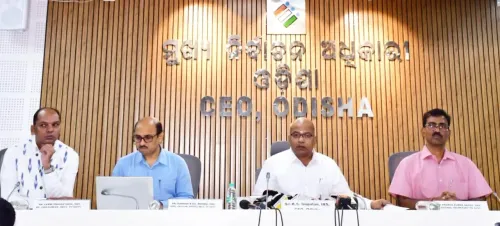Is a husband sending a divorce notice to his wife considered abetment of suicide?

Synopsis
Key Takeaways
- The Kerala High Court overturned a trial court's ruling regarding abetment of suicide.
- Insufficient evidence was found to prove the husband's involvement.
- Legal definitions of abetment of suicide require clear proof of instigation or aid.
- The case highlights the complexities of personal disputes and legal accountability.
- Evidence of humiliation or harassment alone is not enough for charges.
Kochi, May 30 (NationPress) The Kerala High Court has overturned a trial court's decision that had implicated a husband in the charge of abetment of suicide following the tragic suicide of his wife, who jumped into a well after receiving a draft divorce agreement.
The family of the deceased woman reported that members of the husband's family visited their home and delivered the draft divorce agreement to her brother, who subsequently passed it on to her.
Upon reading it, she was deeply distressed and took her own life.
The High Court observed that the accusation was based on the claim that the husband's family had come to the deceased's residence and presented a divorce draft, which led to her mental anguish. While the trial court concluded that there was adequate evidence for abetment of suicide, the High Court judge disagreed.
The court indicated that there was no evidence in the claims to demonstrate that the husband’s family had instigated, intentionally aided, or incited the suicide.
"The law clearly states that to establish a charge of abetment of suicide under Section 306 IPC (Section 108 of BNS), there must be evidence of either instigation, conspiracy, or intentional assistance toward the act of suicide. Mere allegations of humiliation, harassment, or threats, without any accompanying incitement or instigation, are insufficient for this charge," the High Court ruled.
Furthermore, it was noted that the family did not assert that the husband played any active role in instigating or aiding the suicide, leading to the annulment of the trial court's ruling.









